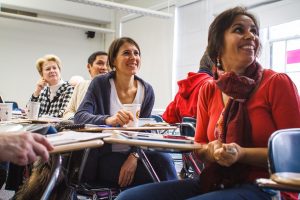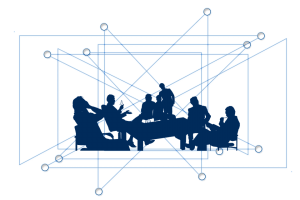It was a room full of participants from diverse roles and disciplinary backgrounds, all curious about what a “strength-based coaching approach” looks like in providing feedback to their students.
“I will be more intentional in finding their strengths… for them to build on.” – a workshop participant’s takeaway
Through small group discussions, we surfaced and reflected on our intentions, assumptions, and current practices around why, when, and how we provide feedback to our students. We had generative dialogues around asking for permission in offering feedback, alignment of feedback and (student/course/program/etc.) goals, and our own comfort given feedback’s inherent relational nature. Given their own unique teaching contexts and (time) constraints, participants were critically considering the logistics of implementation and evaluating the value of this strength-based coaching approach.
Through a number of role-play scenarios, we challenged ourselves to incorporate some of the four core elements of this coaching approach:
-
-
-
- Strength-based,
- Dialogic,
- Reflective, and
- Incremental.
-
-
This experiential learning activity illuminated for the participants the need to become more aware of the diversity in their students’ perspectives and experiences and to “stay curious about their students”. We also explored a few strategies to incorporate elements of this coaching approach through different modalities of feedback (e.g., written feedback, peer feedback, etc.).
I will “consider the student’s perspective and experience in receiving the feedback” – a workshop participant’s reflection on what they would do differently
Of course, this coaching approach is not without its limitations and risks: level of trust that exist in your relationship, student maturity and readiness to engage with constructive feedback, time and workload constraints, etc. are all important considerations as you experiment with a strength-based coaching approach in providing feedback.
To me, this is the core of a learner-centred practice that supports students’ holistic success.

